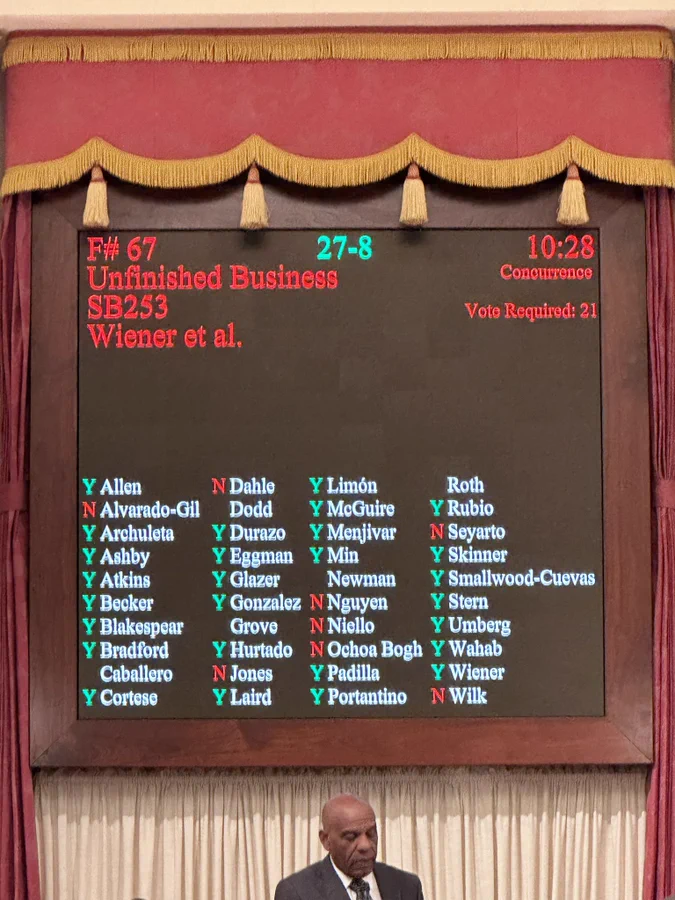A newly proposed California legislation that may necessitate most major U.S. corporations to disclose their complete greenhouse gas (GHG) emissions throughout their supply chains has made significant progress. The bill passed the state’s Assembly with a 41-20 vote, representing a significant step toward enacting mandatory emissions reporting.
The bill will now advance to the Senate, where it was already approved in May, and then to Governor Newsom’s desk for a final decision on becoming law. This bill is similar to one introduced in California last year, which passed in the state Senate but narrowly missed approval in the Assembly. Under this legislation, companies with revenues exceeding $1 billion conducting business in California will be required to annually report emissions from all scopes: direct emissions (Scope 1), emissions from electricity purchase and usage (Scope 2), and indirect emissions associated with supply chains, business travel, employee commuting, procurement, waste, and water usage (Scope 3).
The disclosure requirements will begin in 2026 for Scope 1 and 2 emissions and in 2027 for Scope 3 emissions. Measurement and reporting will adhere to Greenhouse Gas Protocol standards. Companies will also need third-party assurance for their emissions reporting, starting with limited assurance for Scope 1 and 2 emissions in 2026, transitioning to a more rigorous reasonable assurance level in 2030, and limited assurance for Scope 3 emissions in 2030.
This development coincides with the SEC’s finalization of its own climate-related disclosure regulations for U.S. firms, following an initial proposal in March 2022. The California law, in some aspects, surpasses the proposed SEC rules, as it applies to all large companies, not just public ones, and encompasses all Scope 3 emissions. The SEC’s initial proposal mandated reporting on Scope 3 emissions if they were material or if the company had stated emissions reduction goals including Scope 3. SEC Chair Gary Gensler indicated potential adjustments to the rules in response to concerns about the cost and accuracy of providing these disclosures.
Even if the SEC faces challenges in implementing mandatory climate-related reporting, the proposed California law could lead to widespread emissions disclosure. When introducing the bill, it was noted that the new reporting rules would apply to most large U.S. companies operating in the California market. Moreover, many U.S. companies will need to comply with the EU’s Corporate Sustainability Reporting Directive (CSRD), which mandates reporting for large companies conducting business in Europe.
Another bill, SB 261, is also scheduled for an Assembly vote this week. It would require companies to report on climate-related financial risks and the steps they have taken to mitigate and adapt to these risks.
